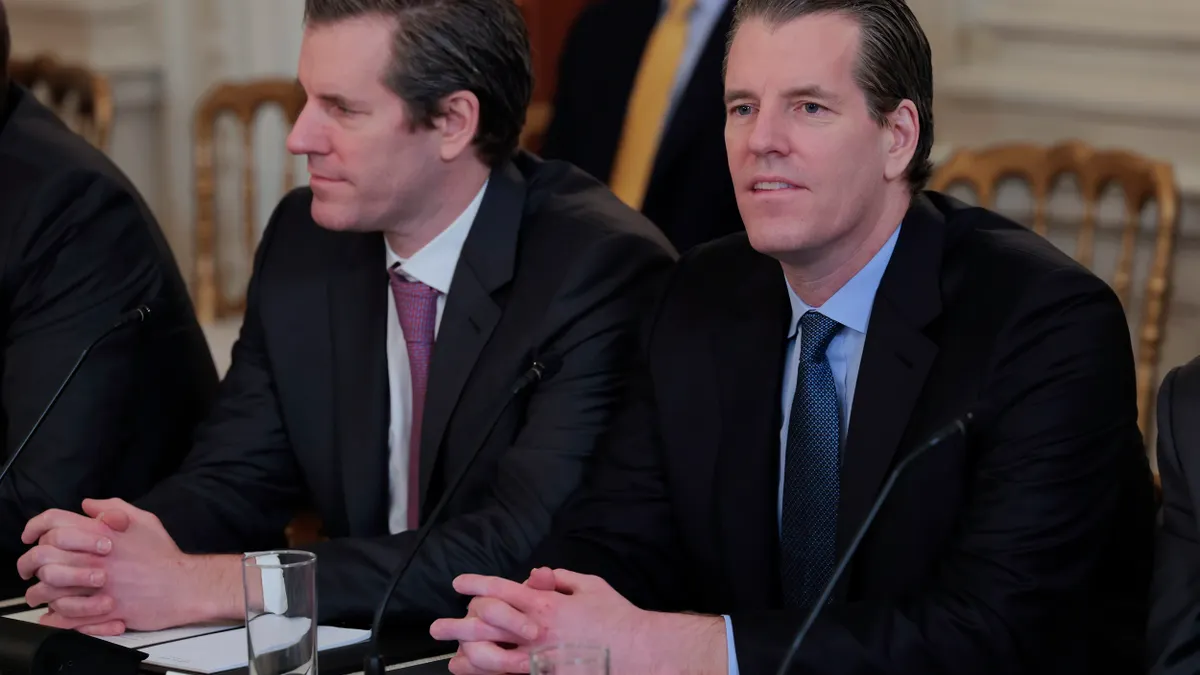Angela Crossman was “just walking in the door” as Brex’s chief people officer (CPO) when the fintech announced in October it was restructuring.
That resulted in Brex cutting 11% of its workforce, or 136 employees. “That wasn't mine to design, but I was here to support the team as we were going through that,” Crossman said during an interview last week. “I got to be here and be supportive, and then help us try and follow through on treating our employees as best as we could through that process.”
Many payments and fintech companies have found themselves in a similar position this year, with cuts occurring at Plaid, digital payments firm Stripe, buy-now-pay-later provider Klarna and online checkout company Bolt, among others. Company leaders have frequently cited macroeconomic headwinds following rapid growth.
Before joining the expense management startup in October, Crossman held the same position at wellness company Noom. Prior to that, she worked at consulting firm Bain & Co. At Brex, she replaced Neal Narayani, who shifted to an adviser role with the company.
San Francisco-based Brex, which now has about 1,150 employees, is “absolutely not anticipating any cuts in 2023,” Crossman said. Nonetheless, she said she expects the fintech industry isn’t done with headcount reductions, as companies continue to prioritize profitability over growth.
Editor’s note: This interview has been edited for clarity and brevity.
PAYMENTS DIVE: What was it like to join Brex right as the company announced cuts?
ANGELA CROSSMAN: A lot of companies are having to make those tough calls. My job is to help Brex make sure that we are making decisions with the most respect for our people, and to balance that with what is the right call for the business.
Stepping in, I was really proud of the team here and the decisions they made, to honor the work of everybody who was leaving, to try and soften the landing as generously as we could for those who were leaving. That’s not just severance — our recruiting team mapped every departing person who wanted job support one-on-one, had calls with them, worked on resumes.

The other thing that I focus on … is recognizing that everyone who stays is going through something real, too. It’s certainly not as tough in tangible ways as the people who are losing their jobs, but that’s a process that we still support people through. They’re saying good-bye to friends, their jobs are changing as teams and work are being reorganized and restructured. Of course, it’s understandable that they lose some confidence and trust that we have to work every day to rebuild.
Brex leadership posted publicly about the employee cuts, as other payments companies such as Stripe and Plaid have done recently. What’s the best way for fintech companies to go about navigating such cuts?
I think you have to be transparent. You have to trust your employees with the information, and you have to recognize everything you do inside these four walls, in some way, is also external. Everything that is said about our company externally also impacts us as employees. Being upfront about what's going on, giving people the information, trusting them, is always the right thing to do. Whether it's current, past, future employees, or customers, by trusting people with that information, it helps them trust that we're making the right decisions for the business.
A number of payments and fintech companies that have made cuts this year, including Brex, have said they grew too fast. Do you anticipate young fintechs will take a more thoughtful approach to hiring?
Absolutely. I'm sure that everyone has always tried to be really thoughtful, but I think (they will be) holding an even higher bar. You don’t go through layoffs as a founder or leader and not ask yourself the question, do we really need this role and are we going to be committed to it? That doesn’t mean you don’t end up letting people go at some point in the future; you never know how the business changes. But I think people learned important lessons about speed. I do think we’re going to see more conservatism. Some of that is because it feels bad to reduce your team, and some of that is also the market. Companies are going to focus more on a path to profitability and extending runway, given uncertainty in the macro environment and not wanting to be in a position to raise (capital). But like many other companies, we’re not freezing hiring. We are hiring for key roles, we are back-filling where important.
As the economic environment remains uncertain heading into 2023, how does that shape priorities for those in your role?
I keep in touch with a lot of CPO peers in fintech and other sectors, and I know a lot of folks are having conversations now, in recognition that they’re going to have to do layoffs in early 2023. It’s going to continue. People are letting go of really great talent to just recognize shifts in business and the environment.
We are all really focused on engagement and morale for our employees. Even if we don’t have plans to cut any deeper, we know that this environment creates uncertainty and it makes people feel nervous. Continuing to inspire them — that we have the right strategy, we have the right team, we care a lot about them as individuals — is going to be important. It’s impossible not to be distracted when friends are getting laid off, or we actually slip into a recession and we don’t know how long that’s going to last. I think it’ll be on our minds, collectively, as leaders, as CPOs, as CEOs: How do we help people through what we expect is going to be a continued tough time in a macro sense?






















